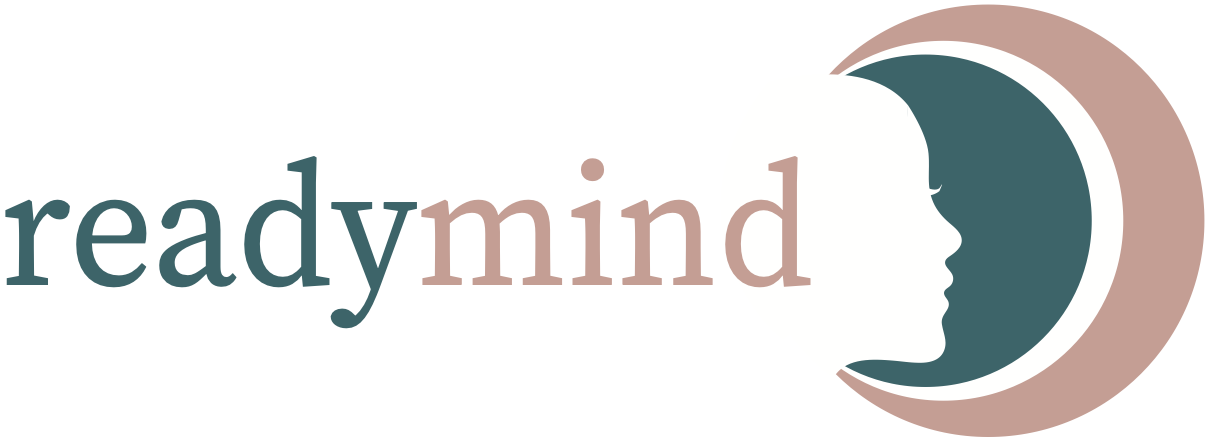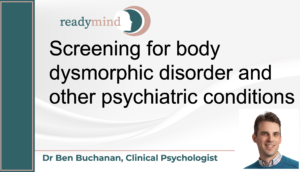So your patient has screened positive for body dysmorphic disorder (BDD), or in the red/high risk zone on the Cosmetic Readiness Questionnaire – NOW WHAT!?
One of the challenges of the new Medical Board Guidelines is that they increase the need for cosmetic practitioners to have difficult conversations with their patients about their mental health and psychological wellbeing. For some, these conversations may have been a core part of your training and you may feel comfortable and well-versed in this. For others, this might be a new and daunting part of your role. Whatever your feeling at this point is completely valid and understandable!
I thought I’d share some of my tips on explaining the screening results to your patients, and handling this conversation as smoothly as possible.
1) Emphasise the importance of honesty to your patients. If you get the chance to talk to your patient before they complete the questionnaire, request that they answer as honestly as possible. I often say to my clients, “I know how much you want the procedure, so you may be tempted to downplay how you’ve been feeling so we can go ahead. But your honesty is really important so that I can understand all of your needs, and we can develop a treatment plan that you’re going to be satisfied with. When patients aren’t open on the questionnaire, they may be more likely to get cosmetic procedures that could be risky or that they’re dissatisfied with”.
2) Don’t say the words ‘body dysmorphia’ or ‘BDD’. Remember that screening is not the same as diagnosis. Screening positive on the questionnaire simply indicates that there is increased likelihood that the individual has BDD. I would recommend more gentle terminology like ‘poor body image’ or ‘appearance anxiety’.
3) Don’t call it a ‘psychological evaluation’ when discussing with patients the need for onward referral. This may feel stigmatising and overwhelming. At ReadyMind, we like to talk about these sessions as ‘Cosmetic Readiness Assessments’, to help patients think about their motivations for the procedure and identify together if they need any additional support to prepare them to be satisfied with any cosmetic treatments they do have. If you are struggling to find psychologists to refer patients to, we also have an online screening service with immediate availability for Cosmetic Readiness Assessments. You can refer patients here.
4) Reframe the way you think about the screening and referral process. The way you think about these systems will likely influence how your patients think about it too. If you feel it is a simple check-box exercise, or some additional red tape, you may come across more resistance from your patients. However, if you talk to them about these assessments as being part of your commitment to your patients’ holistic wellbeing and excellent patient care, you may be met with a different response.
5) When someone screens positive, normalise it. Let your patients know that it’s common to be dissatisfied with your body and your appearance – in fact more than 80% of women and 50% of men are! But when this dissatisfaction starts to cause a lot of distress or interferes with your ability to live your life, we want to make sure that we’re providing all the support the patient needs to feel better and not simply providing a quick or temporary fix.
Also remember that you can and should exercise your clinical judgement and intuition when assessing your patients. You might come across someone who you think hasn’t been fully honest on the questionnaire – go with your gut and ask them some more questions in the consultation. On the flipside, you might come across someone who screens positive when you’re confident that they would benefit from the cosmetic procedure or surgery you are offering. If you have a good rationale for this, you can override the screening result – just document this on your patient’s record!
If you’ve been using some of the shorter BDD questionnaires so far, you may have noticed that some patients are quickly learning to answer it to bypass the screening process. For this reason, we’ve created the Cosmetic Readiness Questionnaire which is a more thorough and comprehensive assessment that also considers your patient’s honesty in the scoring process.
ReadyMind has a range of other validated assessment tools for BDD and other psychological concerns which take between 1-5 minutes to administer.
To access our software to help you administer, score and report on your screening process, you can sign up here.
Dr Toni Pikoos, PhD



